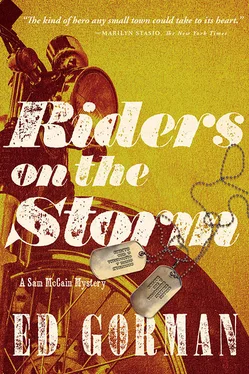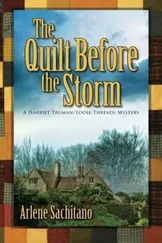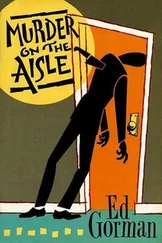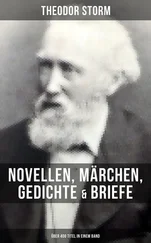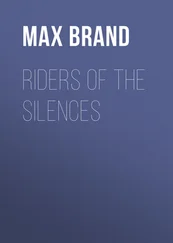“Well, I can scratch off those two.”
Kenny touched the knot in his tie. Yes, tie. These days instead of looking like the comic beatnik Maynard G. Krebs of the late lamented Dobie Gillis show, Kenny affected button-down shirts, chinos, and cordovan penny loafers. His weekly newspaper column gave him some real prominence. There were still people who complained about his books but nonetheless he was asked to talk to groups as respectable as Kiwanis and Rotary. “Don’t worry, I’ve got somebody for you.”
“Who?”
“I’ve heard Anders is as much of a player as Donovan was. And he’s a big pilot. Was a fighter in Nam in the mid-sixties and now has his own big-ass plane. I’ve also been told that lately Donovan and Anders had been arguing pretty violently behind closed doors. But nobody could figure out why. I guess one day Anders came to work with a black eye and wouldn’t come out of his office until just about everybody had left that night.”
“Then they really weren’t getting along.”
“I guess Donovan started hanging around his cousin again to the point that some people thought the cousin was a bodyguard. Your old friend Teddy Byrnes.”
“You’re kidding me. I thought he was still doing time.”
“Been out for a month.”
Teddy Byrnes had been a member of the Night Devils, a biker gang associated with at least three murders over the years. They’d started after the big war when gangs like them came to prominence. In those days Marlon Brando in The Wild One was their patron saint. But there was a difference between movie violence and real violence. They had escaped punishment for their suspected murders but they had been busted for numerous burglaries, assaults, and armed robberies. Their legend terrified people. Whenever they roared into a park on a sunny Sunday afternoon the picnickers fled.
Teddy Byrnes had been a punk among punks. A pretty-boy psychopath who enjoyed beating people. No guns or knives for him. Just beating them. He’d been in our class for three years but got expelled and went to public school. One beating in particular convinced the county attorney that he had Byrnes nailed, but the victim suddenly declined to testify. Then Byrnes’s luck changed. He severely beat a man outside a tavern one rainy night. What he didn’t know was that a police officer who’d been checking doors in the downtown area just happened to have turned the near corner and was walking toward Byrnes and his victim. The officer saw everything.
Then Byrnes went looking for a lawyer....
That morning five years ago I’d been prepping for an important case when Jamie said “Oh.” There was a disturbed tone in her voice, a mixture of shock and surprise. When I looked up from my papers I saw what that “Oh” was all about. Standing in my doorway was none other than Teddy Byrnes. Jamie had recognized him. A whole lot of people knew who he was. He reveled in it.
He wore a white shirt, blue slacks, carefully tousled hair, and a big black Irisher smile. “They said I should get the best and so here I am, Counselor.”
I would have been flattered if I hadn’t known the truth. He was out on bail and looking for legal representation. None of the other firms in town would touch him. The public defender he’d had said that he feared for his life. Well-known legal expert Teddy Byrnes hadn’t liked the public defender they had come up with and had started shoving him around and making threats.
“No thanks, Byrnes.”
But this was a movie moment for him and he played it through. “You know the word I like, Counselor? ‘Sumptuous.’ I learned that by reading a lot of your friend Thibodeau’s books. That surprise you, that bad-ass Teddy Byrnes is a reader? Well I am. I even read Hemingway sometimes. I think you could use that in my defense. That I read a lot. That I’m not this terrible hood people need to be afraid of.” Byrnes was telling the truth. High IQ and a big reader.
“But I forgot what I was talking about. ‘Sumptuous.’ I see something sumptuous right now.” He shifted his gaze to Jamie. She was breathing nervously and staring straight ahead. His legend could do that to you. “I’ve been to every law firm in town but none of them has got a little gal like you do, Counselor.”
The “Counselor” reference had triggered a memory I could not bring into focus. And then it was there. Robert Mitchum in Cape Fear , based on one of my favorite novels by John D. MacDonald, whom I’d been reading since sixth grade. Throughout the movie Mitchum mockingly refers to attorney Gregory Peck as “Counselor.”
Teddy Byrnes was a movie fan.
Then he did it. Advanced quickly on Jamie. He put his hands on her shoulders and was trying to spin her around in her desk chair so she’d face him fully. She screamed.
I didn’t think. I acted.
He was taller, thicker, stronger but I hit him in the side of the face anyway. And in the haze of those few seconds he landed at least six or seven punches on my head and chest and stomach, Jamie screaming all the time.
As he charged out of the office he said: “We’ll meet again, you little asshole.”
Now, sitting with Kenny...
“Teddy Byrnes,” I said.
“Guess he’s meaner than ever.”
“That’s hard to imagine. How he could be meaner.”
“I’d be damned careful of him, Sam. Just stick to Lon Anders.”
“Yeah,” I said. “That sounds like a very good idea. Just sticking to Lon Anders.”
My bones still remembered the impact of Byrnes’s fists.
The Rexall drugstore was notable in my life for a number of reasons. It was where their metal paperback rack provided a good share of my reading material, which ran to crime fiction of the Gold Medal Books variety. I’d grown up on writers such as Peter Rabe, Charles Williams, Vin Packer and Richard Prather. Not to mention Mickey Spillane. The sandwiches were very good, the coffee was strong and hot, and one of the sweetest, prettiest girls in the entire valley had worked there since we’d graduated from high school. No college for Mary. She had to work to support her father, who was struggling with cancer.
She was always too modest to admit it but people liked to tell her that she looked very much like the actress Jean Simmons, that kind of gentle but riveting beauty. And she did even in the yellow uniform she wore every day.
A man in a suit sitting a couple of stools from me said, “Mary, hon, keep the radio on, will you? I want to hear the senator’s press conference.”
Knowing my political tastes, she glanced at me and said, “Don’t worry, Mr. Costello. It doesn’t start for another ten minutes yet.”
She brought me coffee black and a small glazed donut. What she didn’t bring me was her usual smile and I didn’t blame her.
“Hi, Sam. How’ve you been?”
“Pretty good until last night.”
“Poor Will and Karen.”
At that Mr. Costello, who owned the haberdashery, snapped, “How about poor Steve Donovan?”
“You’re right, Mr. Costello. Of course, poor Steve Donovan. It’s just that I don’t believe that Will could kill anybody. Sam and I grew up with him.”
“I know,” Mr. Costello snapped, “in the Hills.”
We were both surprised by his anger. Red tinted Mary’s lovely face. I said, “Yeah, everybody who grew up in the Hills is a born killer.”
“I didn’t say that.”
“But that’s what you meant.”
“Drugs, hippies, Negroes wanting everything for free — that’s what the Hills has turned into these days. And whether you want to admit it or not, McCain, it wasn’t any better in the old days. Now, Mary, turn that radio up so we don’t miss anything.”
After she turned the volume up, she walked back to me, “The girls leave for three weeks in another week.”
Читать дальше
